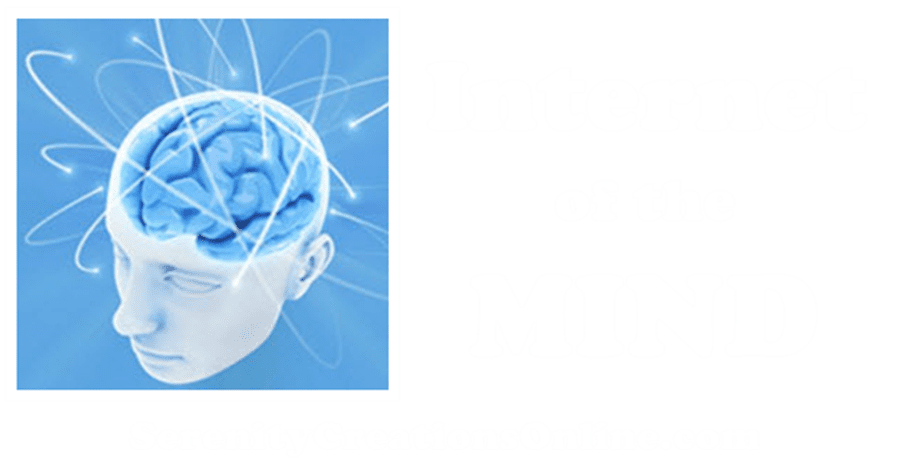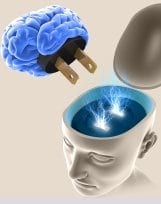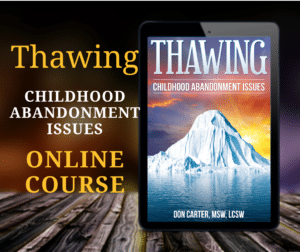
Distorted Reality and Limiting Beliefs
Distorted Reality – Injunctions

Parental Injunctions may have been directly expressed, implied through role modeling, reinforced by giving strokes to the child for certain behavior, or misinterpretations/ fantasies of the child.
Injunctions are parental messages that instruct the child what not to do. These beliefs are the “Should”, “Must”, and “Ought” beliefs that we hold about how things are in the world. Some Injunctions are good and helpful while others become limiting beliefs that can sabotage our relationships and life goals.
Parental Injunctions and Psychological Positions
Key Point: Parental Injunctions are experienced internally by the Child ego state in First Position.
When someone in present day “triggers” one of these injunctions we tend to react the same way we reacted to our parent in childhood — it’s an automatic response coming from our implicit memory banks instructing the Child “how to respond”. We may react aggressively from the Angry/Defiant Child…Passively from the Vulnerable/Needy Child…or Passive-aggressively from a mixture of both. When someone violates one of our Injunctions we may respond from our Critical Parent ego state in order to “get them to act right”.
In their book, Changing Lives Through Redecision Therapy, Robert Goulding, MD and Mary McClure Goulding, MSW have listed several general Injunctions to look for when working on change. They are listed below:
- “Don’t…” – Fearful, over-protective parents say don’t climb trees, don’t run, don’t try, don’t go too far, don’t play rough, don’t go too high on the swings, etc. These parents also tend to do everything for the child. The child gets the distorted reality that they are fragile, or incompetent, and/or every decision they face is critical and, therefore, has trouble making decisions.
- “Don’t Be” – Some verbal examples of how children adopt this Injunction are?
- “If it weren’t for you children, I could divorce your father?”
- “You were a mistake”
- “See what you do, why do you put me through this!”
- “I wish you’d never been born!”
The message can be delivered in a multitude of non-verbal ways such as how the parent cares for and holds the child, the facial expressions, and tone of voice, frowns, scowls, etc.
- “Don’t Be Close” – Discouraging the child from coming close, a lack of attention and affection, lack of physical touching, and a lack of positive strokes all send signals that may be interpreted as “Don’t Be close”. Also, losing several people who have been close may be enough for a child to develop a distorted reality that it is not worth getting close because “People I care about always leave me”.
- “Don’t Be Important” – This injunction comes from distorted reality like “kids are to be seen, not heard”, “Keep your mouth shut at the dinner table”, or other discounts about how they may nothing of importance to offer. Children who are made fun of because of how they look, their race, or their social status may experience this injunction? unless they have made other decisions to “show everyone” how good they are.
- “Don’t Be a Child” – Children who have been assigned the role of taking care of the younger children may have lost or given up their own childhood. They continue to function without the childlike qualities they have not yet developed. Other methods of conveying this distorted reality include telling a five-year-old to “grow up!” or giving a toddler positive strokes for being “little men” or “proper little ladies”.
- “Don’t Grow” – The baby of the family often is the recipient of this Injunction, especially when the empty nest is approaching. This is usually the case when there is not a lot of intimacy between the parents or in single-parent situations. Fathers may send this message to their daughters when they refuse to allow make-up, dating, wearing certain clothes when it is really an age-appropriate thing to do.
- “Don’t Succeed” – A father may send the distorted reality to “not do better than me” by quitting when his son begins to win at the game they are playing. Expecting perfection or frequently saying things like “You can?t do anything right!” or “What the hell is wrong with you?” are other ways this message gets conveyed.
- “Don’t Be You” – Children who get the distorted reality they are not the sex that was preferred by their parents adopt this Injunction. A mother with four boys who wanted a girl may subconsciously make the youngest one her “daughter”. Or a father with all girls may make one of them a “little buddy” by giving positive strokes for doing son-like activities.
- “Don’t Be Sane” – Children who grow up with a parent or parents who have a mental illness can learn how to do mental illness through role modeling. They may also be negatively stroked for healthy thinking and positively stroked for silly or bizarre behaviors. Most often, double-bind messages from parent to child where the child is “damned if s/he does and damned if s/he doesn?t” can foster this distorted reality.
- “Don’t Be Well” – Some children only experienced nurturing when they were sick. They grow up to use the sick role to gain the attention of others and to self-nurture as well. Usually at a subconscious level, getting well would mean isolation and abandonment to someone with this Injunction.
- “Don’t Belong” – Children who move a lot are most often the ones who have learned a distorted reality it’s not safe to attach to a social group because as soon as they make attachments they move again and have to start all over. Other circumstances include kids who were frequently put down or made fun of for one reason or another by other kids.
Distorted Reality – Other Injunctions
Dysfunctional family members learn several unwritten rules that perpetuate dysfunctional relationships. The resulting distorted reality learned by experiences very early in life becomes deeply embedded in the neural networks of how to relate to others:
- “Don’t Talk” – Kids learn not to talk about problems because?
- “If I don’t talk about it then it won’t hurt and will go away”
- Parents give negative strokes for bringing it up
- Abandonment of needs creates fear of abandonment for displeasing the parent
- There is shame about what is going on
- The child is directly told not to talk about it
- Other family members role-model not talking by “ignoring” reality
- No one knows how to talk about it
- “Don’t Trust” – Kids learn not to trust due to?
- Broken Promises
- Unpredictability
- Emotional Unavailability of the parents who are preoccupied with the problem or each other.
- Mutual Denial
- Parents discount the child’s reality – “Your father’s not drunk! He has the flu…Don’t you ever say that again!”
- Through fantasy, the child develops their own distorted reality to create a false sense of security.
- “Don’t Feel” – Kids distorted reality to not feel because?
- Expressions of fear, sadness, anger, guilt, embarrassment, loneliness are not allowed because they may trigger the same in the parent
- The Little Professor in a child builds walls to protect against these feelings (See Survival Roles)
- Learning to emotionally “Numb Out” creates physical, emotional and psychological safety
Distorted Reality – Counter-Injunctions
Restrictive parents also add Counter-Injunctions to tell a child what to do in place of the primary Injunction — In other words, injunctions tell the child what NOT to do while counter-injunctions tell a child what TO do instead. Counter-Injunctions are just as limiting as the primary Injunction… they prevent or inhibit growth and flexibility. Examples of Counter-Injunctions include, but are not limited to, the following…
- “Be Strong”
- “Be perfect”
- “Try Hard”
- “Hurry Up”
- “Please me”
- “Work Hard”
- “Be Careful”
When coupled with an Injunction… Counter-Injunctions can be especially strong…
- “Don’t”…“Be Careful”
- “Don’t Think”…“Drink”
- “Don’t Think”…“Be Confused”
- “Don’t Be a Child”…“Work Hard”
- “Don’t Be Close”…“Be Strong”
- “Don’t Ask for Strokes”…“Be Needless”
- “Don’t Give Strokes”…“Be Withholding and Aloof”
- “Don’t Be Selfish”…“Please Me”
- “Don’t Relax”…“Hurry Up”
Distorted Reality – Attributions
Especially during the Imprint Period, children are in somewhat of a perpetual hypnotic state — Their brain is like a sponge that soaks in everything their parents and other authority figures tell them. Attributions are the frequent comments made by parents that plant “post-hypnotic” suggestions in the mind of a child. For example, when mother says the following…
- “Susie tries hard but she is just not very good at homework, are you dear?”
- “Bobby may not be showing it right now, but he is very smart and he is going to show everyone just how smart, isn’t that right Bobby?”
The Child usually has little choice but to answer “Yes” to the tag question at the end of the statement… This and repetition are what lock the attribution in place. The tag question is not necessary for an attribution to take effect. Just hearing a specific comment over and over again can be enough to imprint a belief in a child’s mind — ample reason to be careful and choose your attributions wisely!!
Distorted Reality – Decisions
Although many Injunctions, Attributions, and Counter-Injunctions are given… they do not become a factor in one’s life unless the child accepts them. Key Point: Life Decisions were made by the Child ego state in order to adapt to the dysfunction of that time in their life — They were made with the very limited resources available to the child at the time.
Then they become embedded in the implicit memory as a subconscious program — automatic responses that can cause problems for an adult later in life. In order to break free of these old programs that are no longer needed, the Adult ego state needs to revisit and re-decide this issue. A child may decide to reject an injunction for a number of reasons. For example, a trusted other such as a teacher, counselor, relative, friend or coach may be able to give the child appropriate support and information over a period of time.
The following is a list of “possible life Decisions” a child might make based upon these example Injunctions.
- “Don’t…” — “I can’t decide.” “I need someone to decide for me.”
- “Don’t Succeed” — “I can’t do anything right.” “I’m stupid.” “I’ll never win anything.”
- “Don’t Be Well or Sane” — “I must be crazy.” “My condition is beyond hope, I can never get better.”
- “Don’t Feel” — “Emotions are a waste of time, whats the point?”
- “Don’t Feel That” — “I’m never angry…anger is dangerous”
- “Don’t Feel What You Feel…Feel What I Feel” — “I don’t know what I feel.” “How should I feel?” “How would you feel, if you were me?”





